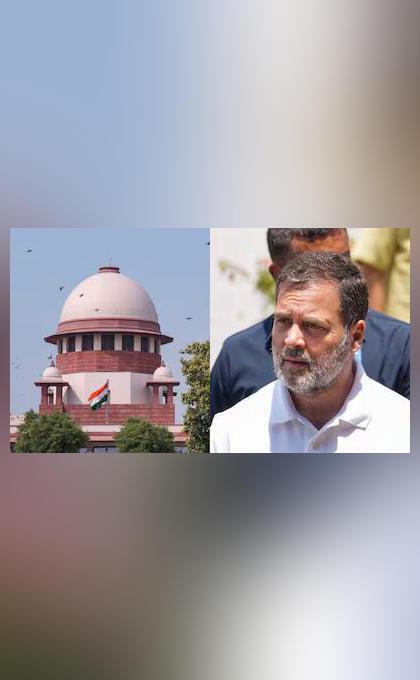
Why Ask on Social Media & Not in Parliament: SC to Rahul on ‘Land Grab’ Claim
The Supreme Court of India recently rebuked Congress leader Rahul Gandhi over his claim that China had grabbed 2,000 square kilometers of Indian land. The court’s stern rebuke came while staying a defamation case against Rahul for his remarks about the Indian Army. The court’s remark has sparked a debate about the role of social media in disseminating information and the responsibility of leaders to verify facts before making public statements.
Rahul Gandhi had made the claim in 2020, during a public rally in Wayanad, Kerala, where he claimed that China had occupied 2,000 square kilometers of Indian land. The statement was widely shared on social media, and soon became a rallying cry for anti-China sentiments in the country. However, the Indian government and the Chinese government both denied the claim, and the exact status of the border remained unclear.
The Supreme Court’s rebuke came on Monday, when it stayed the defamation case against Rahul Gandhi, but also asked him to explain how he knew that 2,000 square kilometers of Indian land was occupied by China. The court’s remark was a clear indication that it did not appreciate Rahul’s claim, and that he had no basis for making such a statement.
The court’s rebuke has raised important questions about the role of social media in disseminating information, and the responsibility of leaders to verify facts before making public statements. In today’s digital age, social media has become a powerful tool for disseminating information, and leaders are often quick to share their thoughts and opinions on social media platforms.
However, social media is not always a reliable source of information, and leaders must be careful not to spread misinformation or unverified claims. Rahul Gandhi’s claim about China occupying 2,000 square kilometers of Indian land is a case in point. The claim was widely shared on social media, but there is no concrete evidence to support it.
The Supreme Court’s rebuke is also a reminder that leaders must respect the institutions of democracy, including Parliament. Rahul Gandhi’s claim was made outside of Parliament, and not as a formal statement in the House. This raises questions about the accountability of leaders and the need for them to be transparent and honest in their public statements.
In a democracy, leaders have a responsibility to provide accurate and reliable information to the public. They must also be willing to engage with the public and respond to criticism in a constructive and respectful manner. In today’s digital age, social media has become an important platform for leaders to engage with the public, but it is not a substitute for formal institutions of democracy.
The Supreme Court’s rebuke of Rahul Gandhi is a reminder that leaders must be held accountable for their actions and statements. They must also be willing to respect the institutions of democracy and engage with the public in a responsible and transparent manner.
The next hearing in the case is scheduled for three weeks, and it will be interesting to see how Rahul Gandhi responds to the Supreme Court’s rebuke. Will he provide concrete evidence to support his claim, or will he apologize for spreading misinformation? Only time will tell.






